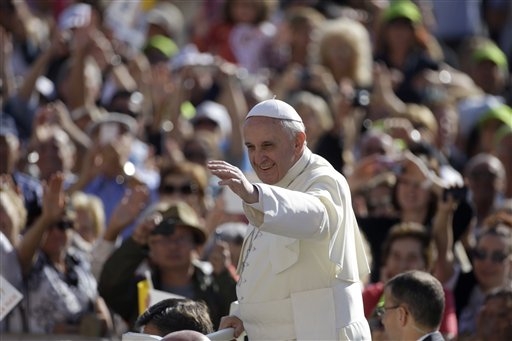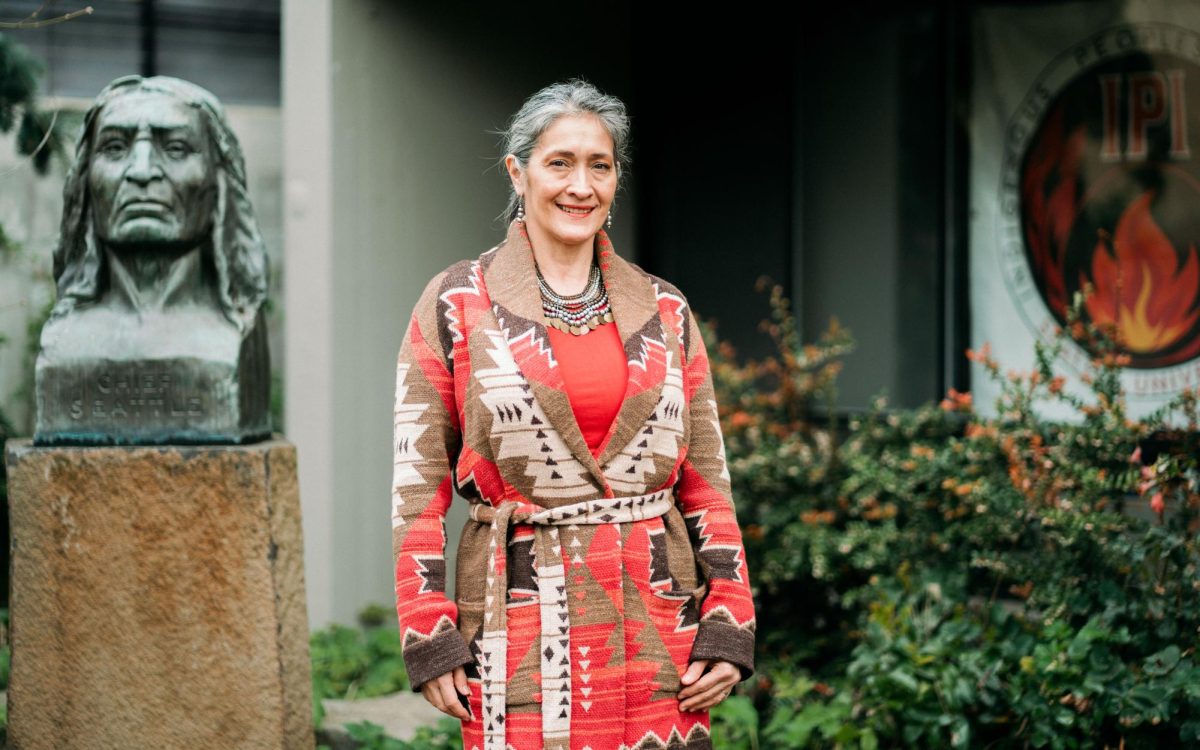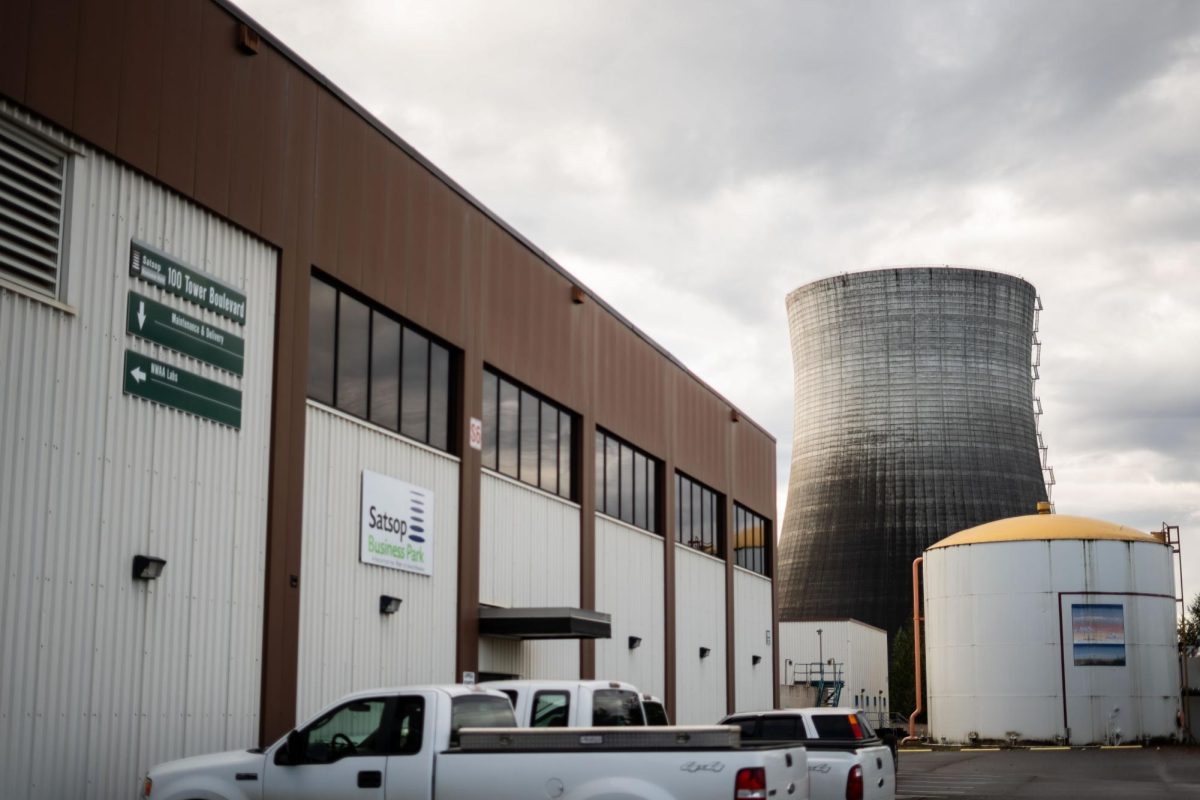
Pope Francis greets his papal audience on Sept. 25, 2013 in the Vatican City. Photo courtesy of Rex Features via AP images.
Pope Francis has only been pope for six months, and already he has distinguished himself among many as a breath of fresh air within the Catholic Church.
In late September, Francis surprised the world with a published interview on his vision for the church; a large, inclusive body defined by its people, which contrasts the smaller, more exclusive church promoted by many of Francis’s predecessors.
The gist of the recent interview, which was conducted by fellow Jesuit Rev. Antonio Sparado and published in America, a Jesuit magazine, is summarized by its title: “A Big Heart Open to God.” Francis emphasizes the need for church ministers to make caring for the people a priority, and let specific dogmatic practices come second.
“This church with which we should be thinking is the home of all, not a small chapel that can hold only a small group of selected people,” Francis said. “We must not reduce the bosom of the universal church to a nest protecting our mediocrity.”
According to a recent article by The New York Times, Francis presents “a striking contrast with his predecessor, Pope Benedict XVI, the doctrinal defender who envisioned a smaller, purer church.”
The recent stir reminds Catholics of the factions within the church. More liberal Catholics, especially those who feel offended or ostracized by Benedict’s conservative philosophy, are excited about the new changes that Francis’s role will bring to the church. Conservative Catholics, on the other hand, are concerned that Francis’s words will diminish concern for issues such as abortion and gay marriage. What all Catholics must realize is that Francis is not talking about changing church doctrine; rather he is emphasizing a shift in philosophy and priorities.
A recent example of the inconsistency in church doctrine is presented in the case of Providence College, whose provost recently announced the cancellation of a pro-gay marriage speaker. The lecturer, John Corvino, has spoken in support of same-sex marriage at many Catholic colleges, but was asked not to speak at Providence because the topic of the lecture defies the Catholic institutions “fundamental moral principles.”
Critics question whether these principles really outweigh the call to be inclusive of all people.
After strong public outcry overProvidence’s decision, the college re-invited Corvino to debate gay marriage at Providence in the spring. This was announced just a week after Providence’s initial decision to cancel Corvino’s lecture.
According to Mary Kay Brennan, a professor in social work at Seattle University, the true church that Francis defines is one in which the people make up the church.
“I see the traditional church as the church he’s defining,” Brennan said. “I see his vision, and what he’s articulating, to be a church. He is setting a different tone, and calling us into question and reminding us about the true church.”
Brennan mentioned that Francis himself has a community view of living based on relationships, and applies this perspective to tensions within the church. Francis acknowledges that there are both older and younger generations within the church community, as well as more conservative and more liberal Catholics. As a Jesuit, however, Francis is experienced in the Ignatian tenants that allow people in disagreement to work together, and stays firm in his belief that loving relationships remain the priority of the Catholic faith.
The issue of Providence College’s lack of support for a pro-gay speaker hits home for some students at Seattle U, which, as an often liberally-minded Catholic school in the heart of a liberal city, must work to find a balance between inclusion of all people and upholding Catholic social values.
For Brendan Busse, S.J., a professor at Seattle U, the distinction between a Catholic university and a Jesuit Catholic university is what makes Seattle U unique.
“From a Jesuit perspective, Seattle University has to ask those questions, has to invite everybody to the table. There is no question that’s off the table, there is no person that’s not worth talking to, there’s no dialogue that’s not worth engaging,” he said.
It is this traditional Jesuit philosophy that Francis embraces.
The challenge, on the opposite side of that, is the challenge of making voices heard. The Ignatian philosophy emphasizes the need for times of silence and reflection in addition to shared opinion.
Busse encourages students to examine not only the content of Francis’ speech, but the tone in which this recent interview was presented.
“A lot of people will pay attention to the content of what he says,” Busse said. “I wonder how many people will pay attention to the way that he is modeling a way of being a Catholic. Ignatius says that we show our love in deeds more than words. The way that Francis is doing things is teaching us what we need to be doing.”
Busse concluded that Francis’s tone is one of both listening and discerning. In the article, Francis mentions that he has made the mistake of being too authoritarian in the past. He says that he has learned not to make decisions too quickly, because often the first idea is not the correct or best decision. This principle of discernment, which comes directly from Ignatius himself, might disappoint Catholics who want to see immediate changes within the church.
Although Francis’s views may seem radical, he himself mentioned that the church doctrine is not going to change any time soon. Greg Reynolds, a Victorian Catholic priest from the Western Port parish, was recently excommunicated for his views about gay marriage and women becoming priests. According to an article by Time Magazine, the excommunication was ordered by Francis himself, which brings doubts about how much progress the church has made.
Regardless of the fact that Pope Francis has emphasized that he is not going to change church doctrine, his presence has definitely brought an exciting and invigorating energy to the church. If Catholics are concerned that this energy brings tensions to light within the Catholic community, then maybe they should consider that this is exactly what Francis intended.
“Jesuits love paradox,” Busse said. “We’re often trying to be contemplative in action, trying to bridge both sides of different borders. It’s a tension that we welcome.”











